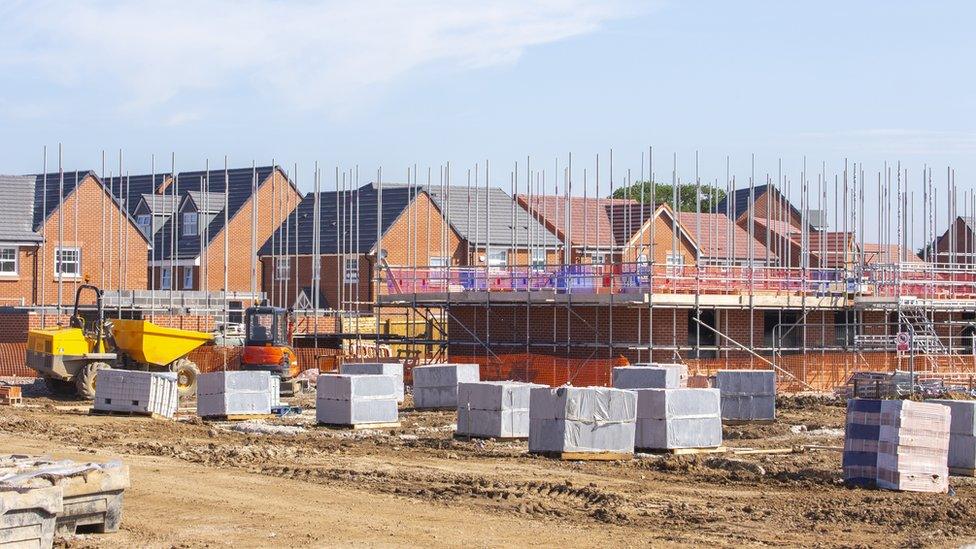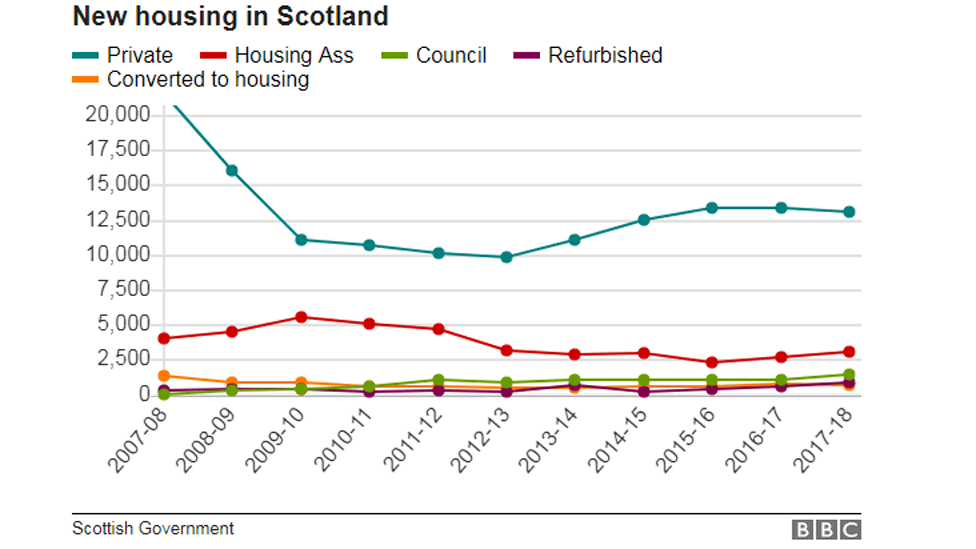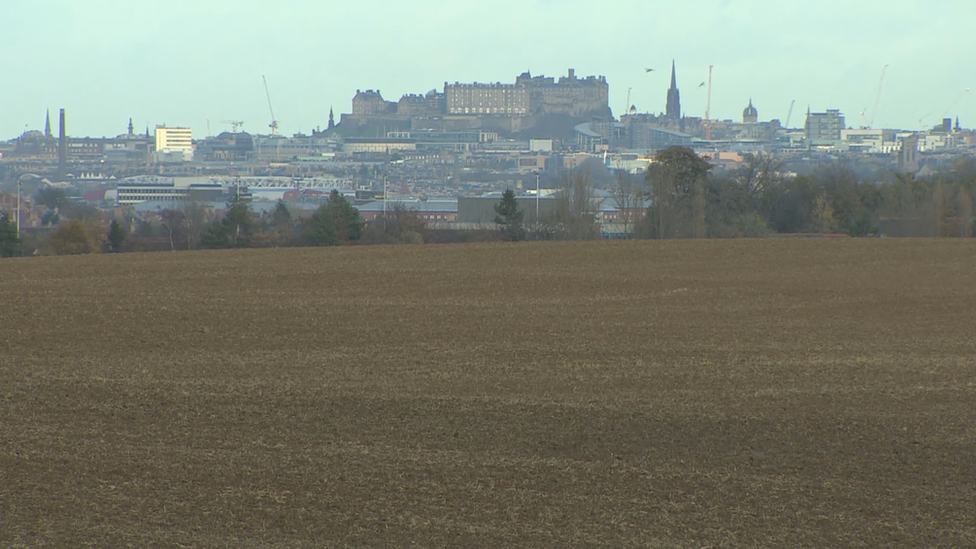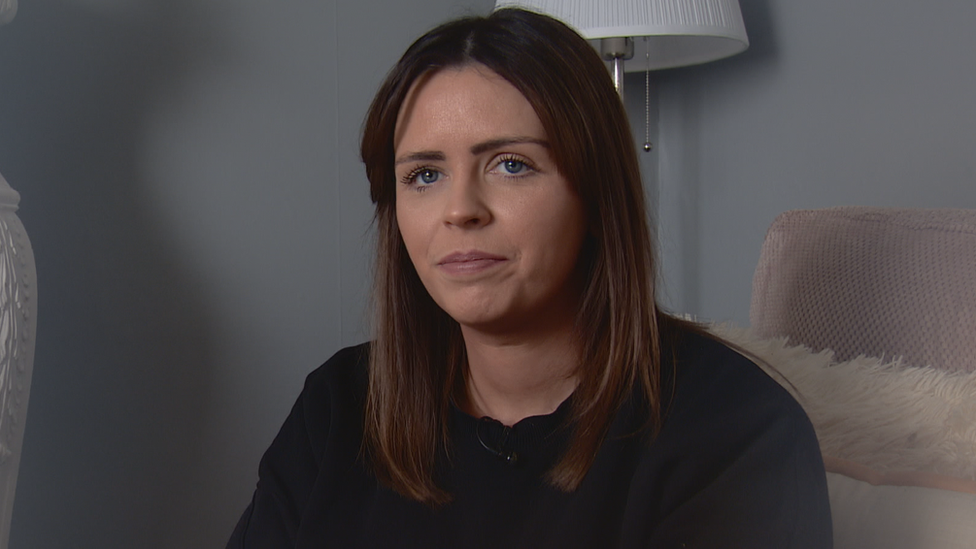Huge shortfall in new home construction
- Published

About 7,000 fewer homes a year are being built in Scotland than needed, according to analysis.
Academics and house builders agree that there is a continuing need for at least 23,000 new homes a year.
That figure rises to 25,000 if you add in extra homes needed to catch up with the backlog - but in the year to last October, only 18,000 homes were built.
Academics at the University of Glasgow said house builders tended to "drip feed" the market, to keep prices high.
Prof David Adams said: "The only way to achieve the price is to drip feed the houses to the market because you would not want to try to sell all the houses in one go or you would not achieve the price"

Who is building Scotland's new homes?

Land banking
Attention has been focused on the practice of land banking - buying undeveloped land as an investment with no specific plan for its development.
If developers can constrain the supply of land, the price of new homes - and therefore house builders' profits - will stay high.
Prof Adams told the BBC that preparation ahead of building houses - before bricks are laid - can take time. This is the justification for builders holding on to land for long periods before house building starts.
However, builders often also make money through this process. He added: "Over time the value of land can rise quite significantly.
"If that happens, house builders can make profit not simply from building the house but from the increase in the value of the land."

The value of this area of green belt near Edinburgh will go up in value when its use changes from agricultural land to residential land
Green MSP Andy Wightman said he thought it was key to determine who should profit from the rising price of land.
He said: "Land has a very, very substantial value once it has planning consent, compared to land for example at agricultural values, and a critical question is who captures that value.
"If that's captured by developers that means people pay more for housing."
The role of councils
Prof Glen Bramley, of Heriot-Watt University, said councils could play a greater role by purchasing land themselves.
He said: "The local authority should play a leading role buying the land at the beginning, but only pay what it's worth in its current use, which might be farming or low grade industry or something like that.
"It should then get different builders to build different parts of the development to a timetable that it specifies."
Nicola Barclay, of Homes for Scotland, said there were legitimate reasons for builders acquiring land well in advance of construction.
She said: "When a PLC builder says they have the land bank that is their raw material to run their business - they cannot build houses unless they have land, so it's really important that they have a pipeline of developments available to them for the next three to five years so they know they can continue employing their staff."

The problem for buyers

First-time buyer Aimee-Leigh Lawrie has found it difficult to stay in her home city of Edinburgh.
She said: "If I hadn't had the help of family I definitely wouldn't be living in Edinburgh.
"I've got three kids so three bedrooms was what we were looking for.
"We were thinking we were going to have to move out of Edinburgh which would have been Tranent - maybe even further to get more value for money."